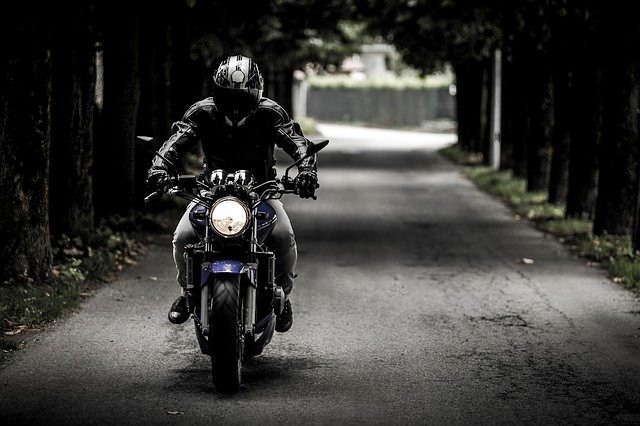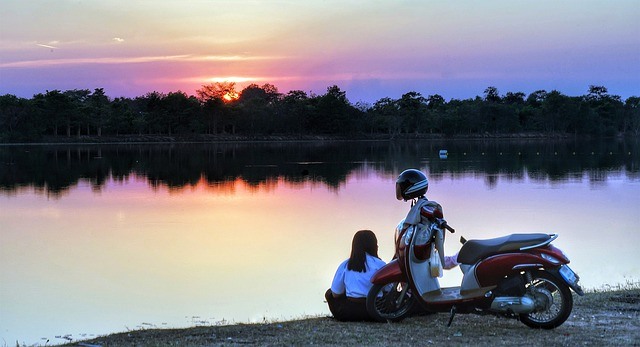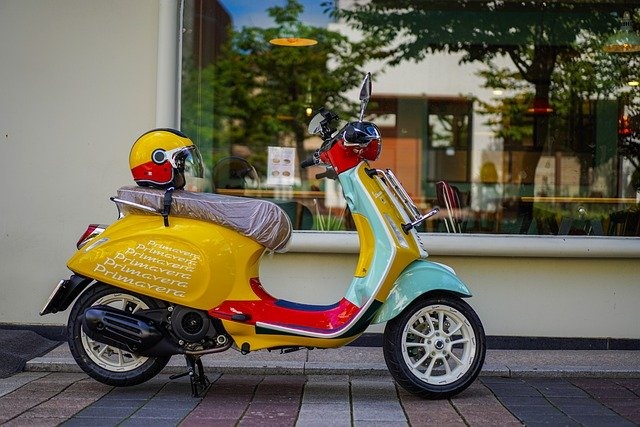
While many short and long-term visitors to Thailand rent motorbikes at 150-300 baht ($5-$10) per day, few people seem to consider the benefits of buying a motorbike in Thailand.
Instead, they spend several thousand baht renting a motorbike. Money they hand over to a rental shop every month and, other than use of the bike, get nothing in return.
In fact, if you are planning on living in the south east Asian country for longer than a couple of months, buying a motorbike in Thailand is actually the smarter decision to make.

There are numerous benefits to buying a motorbike in Thailand
Renting motorbikes in Thailand or anywhere else, is not really a good financial decision. Not if you plan on doing it for more than a couple of days.
When you rent a motorbike, you will typically pay around 3,000 to 10,000 baht ($100 to $333) per month depending on the make and model.
Over a year’s rental period, you will pay the bike rental company between 36,000 baht and 120,000 baht ($1,200 to $4,000) just for the use of the bike.
Both of these amounts, if paid out to buy a scooter or a motorbike instead, would allow you to purchase your own bike. A bike that, when you came to sell it, you could recoup a decent percentage of its initial cost.

The cost of buying a motorbike in Thailand is probably much cheaper than you may think. If you don’t want to go all the way and buy a big bike (ie: anything over 150cc), the extremely popular Honda Click scooter comes in a few models and is priced between 50,000 and 60,000 baht ($1,665 and $2,000) for a new bike.
If you buy a used Honda Click, they are even cheaper with 30,000 baht (under $1,000) or even under 20,000 baht ($665) for some models a typical price.
Meanwhile, a decent second-hand motorbike can be picked up in many areas of Thailand for around 60,000 baht ($2,000).
If you would prefer to buy a new one, the Honda Forza starts at 165,000 baht ($5,500) on up.
Even with that kind of layout, you will still be spending less money on it than if you rented one, as long as you stay in the country longer than a few months.
Motorbikes hold their resale value in Thailand. If you buy a bike or a scooter, you can usually recoup more than three quarters of its initial price when you decide to sell it as bikes hold their value well in Thailand.
That means, even if you operate it for two years before selling it, it will only cost you a few hundred dollars plus the price of gas (cheap!) and the price of insurance (even cheaper!)
A far cry from the several thousand dollars you would have spent renting a motorbike or scooter by now.

Buying a motorbike or scooter — what you will need
Other than the cost of the bike, of course, there are a couple more things you will need if you plan to buy a scooter or a motorbike anywhere in Thailand. That includes buying a bike in a small place like Khon Kaen or a major city like Bangkok or Chiang Mai.
Buying is pretty simple, as it is usually just cash or a credit card. Be warned though, some dealers do charge a 3% credit card fee, so that can increase the price.
Registering a motorbike in Thailand in your name is where the minor complications arise.
This is because you will need to have an ID (usually your passport, unless you are a permanent resident and have a Thai ID) and a Certificate of Residency.
You can get the Certificate of Residency from Thai Immigration, but it may take them a couple of weeks to process it. Paying a small fee, however, will usually mean that certificate is ready within 24 hours.
You must also have a long-stay visa to be able to get this (a Non O or a Non B is usual), as they are not likely to issue one for someone in Thailand on a tourist visa.
If you have a long-stay visa, then you just need to take your passport and two color photographs of yourself to Immigration, along with a copy of the photo page of your passport and a copy of your TM6 card.
The final documentation you must have is your Proof of Residence — which is literally a copy of your rental agreement, your Residency Book or a letter from your landlord stating where you live.
Hand these documents over to Immigration and you should be ready to ride off on your own motorbike just a day or two later.
